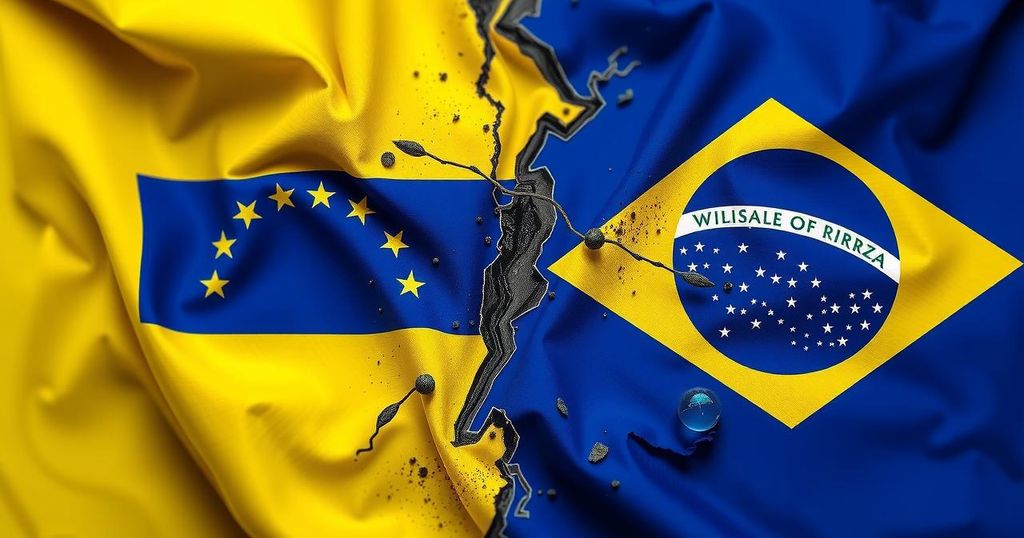The Venezuelan government has condemned Brazil’s rejection of its BRICS membership bid, accusing Brazilian officials of undermining diplomatic relations by aligning with U.S. interests. The dispute arises from tensions over Venezuela’s disputed presidential election results, prompting Brazil to maintain its stance against Venezuela’s inclusion, citing a lack of regional influence. The situation reflects ongoing diplomatic strains in South America.
CARACAS, Venezuela (AP) — The Venezuelan government has intensified its criticisms against Brazil’s foreign relations officials, accusing them of compromising diplomatic ties and serving U.S. interests. These accusations follow Brazil’s decision to reject Venezuela’s application to join the BRICS bloc during their recent summit in Russia, exacerbating ongoing tensions related to Venezuela’s disputed July presidential election results. Venezuela’s Foreign Affairs Ministry summoned Breno Hermann, Brazil’s chargé d’affaires in Venezuela, to convey its strong disapproval of what it termed “recurrent interventionist” statements made by Brazilian representatives. The ministry particularly targeted Celso Amorim, Brazil’s former foreign affairs minister, labeling him as a “messenger of American imperialism” for his critical remarks concerning Venezuela’s internal democratic processes. Amorim himself acknowledged the strain in relations, linking it to Venezuela’s failure to release comprehensive election results that corroborate President Nicolás Maduro’s victory, while emphasizing that future improvements in diplomacy depend on Venezuela’s actions. Venezuela contends that the inability to disclose detailed election outcomes stemmed from a hacking incident affecting their official website, while opposition members assert that their tally sheets indicate a significant loss for Maduro. Attempts by leftist leaders from the region to mediate in the electoral controversy have not yielded results, with Maduro reinforcing his administration. Brazil’s stance against Venezuela’s BRICS bid reflects a broader repudiation of an unrestrained expansion of the group, as stated by Amorim, who noted that the prospective members should have regional influence. Venezuela’s Foreign Affairs Ministry criticized Brazil’s decision as “irrational” and compared it to U.S. economic sanctions imposed against the country.
The ongoing relations between Venezuela and Brazil have been strained, particularly following the controversial presidential elections in Venezuela in July, which resulted in accusations of electoral fraud by opposition parties. The refusal of Brazil to support Venezuela’s accession to the BRICS bloc—a coalition of emerging economies aimed at enhancing cooperation among its members—has further complicated diplomatic interactions. This rejection occurs amidst broader criticisms against the Maduro administration regarding its policies and human rights records, which have led to significant international scrutiny and sanctions.
The escalation of tensions between Venezuela and Brazil following the latter’s rejection of Venezuela’s BRICS membership highlights the complex interplay of regional politics and diplomatic relations in South America. The Venezuelan government’s vehement response underscores its delicate position in the face of both internal political challenges and external pressures from neighboring countries, particularly Brazil. Future discussions will likely hinge on Venezuela’s willingness to address concerns regarding its electoral integrity and governance practices.
Original Source: apnews.com






